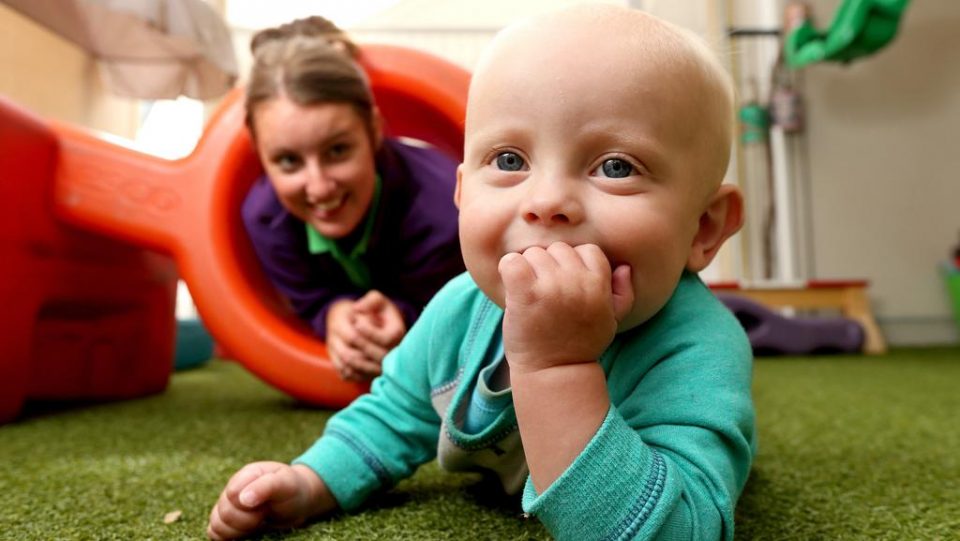There’s a lot more research on center-based daycare than on other childcare options. I’ll go over that first and then talk more briefly about in-home care, etc.. Effects are always measured relative to children staying at home.
First, here are the effects of 15–30 hrs of daycare a week, broken down by age.
For ages 3+, there are few downsides and substantial advantages. Daycare boosts both cognitive skills (literacy and mathematics) and social skills as measured in the first few years at school.
For age 2, the findings are more mixed. This is the best age to start in terms of boosting later cognitive skills, but children are more likely to act out and be angry when they reach school.
For age 1, childcare may improve cognitive skills a little, though certainly less than starting at age 2. But it also has even larger negative effects on later behavior. There is no boost to social skills.
For children aged 0–12 months, daycare likely damages cognitive skills and children’s later behavior at school is even worse. There is no boost to social skills.
Compared to 15–30 hours, 30+ hours a week before 4½ or so doesn’t give any cognitive benefits but makes children more likely to act out and be angry when they reach school. For children from “middle class and affluent families”, that much time in daycare has about two-thirds the negative effect on behavior of having “a moderately depressed mother”. Read more…

